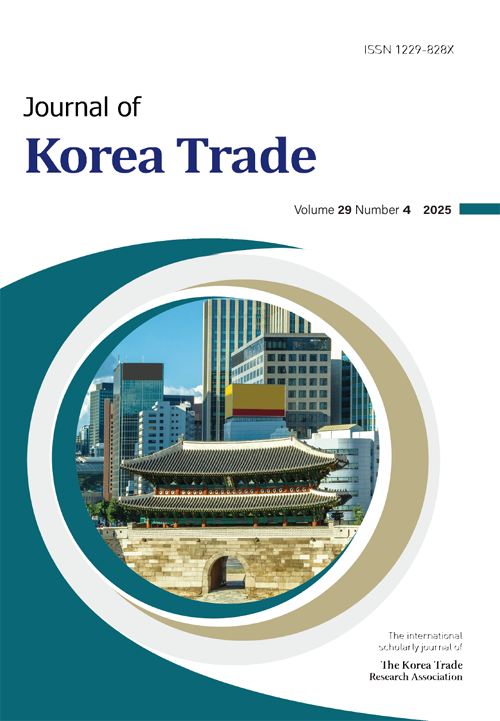The Influence of Consumption Values on Consumer Loyalty in Mobile Commerce: A Comparative Study between South Korea and China
- 한국무역학회
- Journal of Korea Trade (JKT)
- Vol.29 No.4
-
2025.06103 - 130 (28 pages)
-
DOI : 10.35611/jkt.2025.29.4.103
- 3

Purpose - Understanding consumers’ cultural contexts is vital in today’s multicultural world and essential for success in global markets. This study aims to explore both distinctions and commonalities in consumption values among consumers from diverse cultural backgrounds, specifically within the context of mobile commerce. In addition to contributing to theoretical development, we aim to provide practical management guidelines for related companies. Design/Methodology - Utilitarian, hedonic, and individuality values were identified as the primary independent variables, based on consumption value theory and self-congruity theory, to analyze their impact on consumer satisfaction and loyalty. A total of 521 valid questionnaires were collected from consumers in South Korea and China. The data were analyzed using structural equation modeling, and rigorous methods such as path comparison and multiple- group analyses were employed to enhance the reliability of the findings. Findings - Both Korean and Chinese mobile commerce users found that utilitarian and hedonic values increased consumer satisfaction. However, regarding individuality value—the desire to express uniqueness through mobile commerce—this factor significantly influenced consumer satisfaction in China but not in Korea. The results of the multiple-group analysis examining cross-country moderating effects demonstrated that utilitarian and hedonic values have comparable impact on consumer satisfaction in both Korea and China. However, the impact of individuality values was considerably more pronounced in China than in Korea, suggesting that the Chinese mobile market requires a strategic approach to strengthen individuality value among local consumers. Originality/value - This study is significant for its comparative analysis of consumption values in mobile commerce across countries with divergent cultural backgrounds. This analysis is especially relevant as the share of mobile commerce continues to grow rapidly driven by Internet access and smartphone adoption. Furthermore, the study contributes original insights by advancing relevant theories and offering practical guidance for relevant companies.
1. Introduction
2. Theoretical Background
3. Research Design
4. Empirical Analysis Results
5. Discussion & Conclusion
References
(0)
(0)